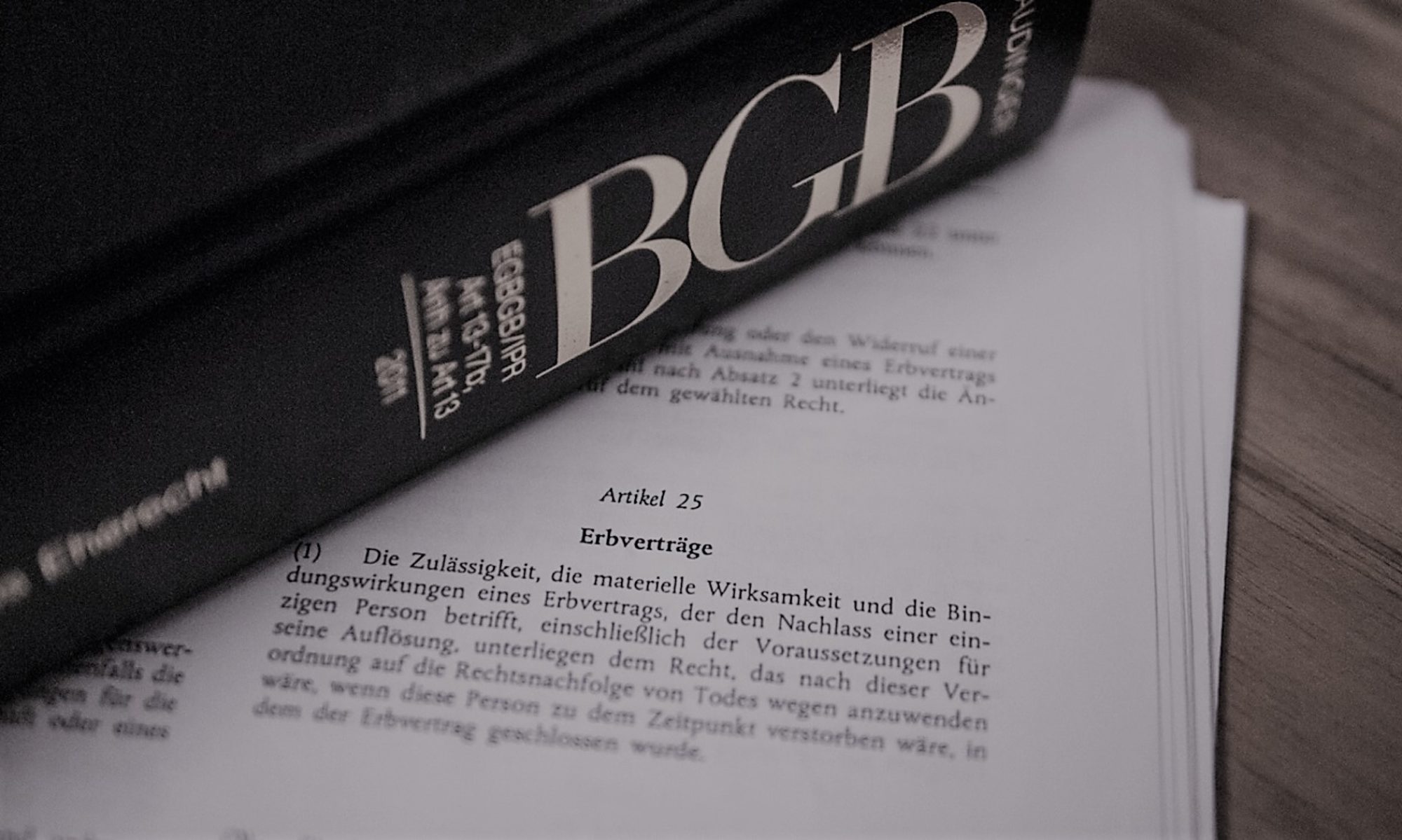Depending on the case, further transactions may be necessary or expedient for the settlement of an estate. These include in particular
Settlement of inheritance
If there are several heirs, they form a community of heirs. They are then jointly entitled to the entire estate assets. If estate assets are to be transferred to one or individual heirs, a division of the estate is required. The settlement of the estate must be notarized in particular if the heirs agree on real estate (land, residential and partial ownership, heritable building rights) or GmbH shares. In particular, the contract must stipulate who is to receive the assets, how the costs, encumbrances and liabilities for the estate are to be allocated and whether the beneficiary heir is to pay compensation to the other heirs. The land register transfer to one or individual heirs is also free of charge at the land registry if it is carried out within two years of the inheritance and if you have not previously had the land register corrected for all heirs. If you intend to settle the estate, you should therefore not yet have the land register corrected for all heirs.
Purchase agreements for estate objects
The estate can be realized by the heirs selling estate items and dividing the proceeds between themselves. All co-heirs must always participate in a sale if the testator has not appointed an executor to settle the estate. The sale of estate assets must be notarized, particularly in the case of real estate (land, residential and partial ownership, heritable building rights).
As a rule, the land register must be corrected in advance for the sale of inherited property. The land register correction is free of charge at the land registry if it is carried out within two years of the inheritance. To correct the land register, please provide us with a notarized disposition of property upon death (will or inheritance contract) or a certificate of inheritance. If you still require a certificate of inheritance, we will be happy to prepare the corresponding application for you and submit it to the court.
With regard to the payment of the purchase price, it makes sense for the buyer to pay the purchase price in total to a single account of the community of heirs (for example, an existing account of the testator). This is because if the buyer pays the purchase price to several heirs separately, this increases the risk of errors in payment and also leads to an increase in fees, as this also constitutes a division of the estate. The heirs can then divide the purchase price among themselves at a later date.
In all other respects, the sale of an estate property is concluded and processed in the same way as a regular property purchase agreement.
Fulfillment of legacy
If the testator has made a bequest in his will or in the inheritance contract, the heir (or, if applicable, the executor of the will) must fulfill this bequest to the beneficiary legatee. The fulfillment of the bequest must be notarized in particular if the object of the bequest is real property (land, residential property and partial ownership, heritable building rights) or GmbH shares. In addition to the fulfillment of the bequest, the bequest fulfillment agreement may also contain further provisions on the delimitation of costs, charges and liabilities.
Transfer of inheritance
In a transfer of inheritance, an heir transfers his or her entire share of the inheritance to one of the other co-heirs or to a third party. The transfer of an inheritance share can be made against payment of a purchase price or wholly or partially free of charge (as a gift). In the event of a sale to a third party, the other co-heirs have a right of first refusal. The heir remains liable for any debts of the estate towards the creditors of the estate. As a rule, the parties involved agree that the acquirer of the inheritance share releases the departing heir from all liabilities. The transfer of an inheritance share can be a more cost-effective alternative to the division of the estate if the other heirs wish to retain the community of heirs or if there are only (still) two heirs, one of whom wishes to take over the (remaining) estate alone.

